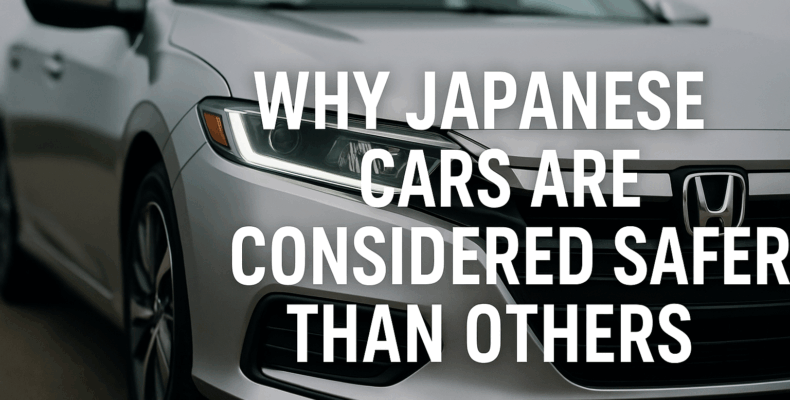The Hidden Reasons Behind Japan’s Reputation for Automotive Safety
When drivers around the world think of safe, reliable vehicles, Japanese cars often come to mind first. From Tokyo to Toronto, from Nairobi to New York, vehicles made in Japan enjoy a strong reputation for keeping people protected on the road.
But why exactly are Japanese cars considered safer than others? It’s not just clever marketing — it’s the result of careful engineering, innovation, and a culture of quality.
Let’s explore the key reasons behind the safety success of Japanese automobiles.
1. A Culture of Precision and Quality
Safety starts at the factory. Japanese manufacturers follow the philosophy of “kaizen” (continuous improvement) and lean manufacturing, where even the smallest defect is unacceptable.
This dedication to perfection means:
-
Higher production standards
-
Fewer recalls and defects
-
Consistent reliability across models
When a car is built with care, it behaves more predictably in critical situations — which makes it safer.
2. Early Adoption of Advanced Safety Technology
Japanese automakers have been pioneers in developing and deploying safety technologies for decades.
Features like:
-
Anti-lock braking systems (ABS)
-
Electronic stability control (ESC)
-
Collision avoidance systems
-
Lane departure warning
-
Adaptive cruise control
were introduced early and often became standard before many global competitors followed.
Brands like Toyota, Honda, Subaru, Mazda, and Nissan continue to push forward with innovations like driver monitoring systems and autonomous driving assistance.
3. World-Class Crash Test Results
Japanese vehicles consistently earn top safety ratings from respected agencies around the world:
-
JNCAP (Japan)
-
IIHS (USA)
-
Euro NCAP (Europe)
Cars like the Toyota Prius, Honda CR-V, Subaru Outback, and Mazda CX-5 regularly achieve 5-star or Top Safety Pick awards — a clear sign of trusted protection.
4. Intelligent Design with Safety in Mind
From the start, Japanese car design places strong emphasis on occupant safety and pedestrian protection.
Key design traits include:
-
Crumple zones that absorb impact
-
High-strength steel frames
-
Advanced airbag placement
-
Excellent visibility from the driver’s seat
-
Ergonomic layouts that reduce driver distraction
These aren’t just luxury features — even compact, budget-friendly models benefit from these thoughtful design elements.
5. Safety That Lasts — Even in Used Cars
One major advantage of Japanese cars is that their safety doesn’t fade over time. Thanks to high build quality and durable materials, many used Japanese cars still retain:
-
Reliable crash protection
-
Working safety tech
-
Structural integrity
even after 8–10 years on the road.
That’s why they’re so popular in the global used car market.
Trusted Exporters of Japanese Used Cars
If you’re looking to import a Japanese vehicle with proven safety, consider these reliable Japan-based exporters:
-
EVERY Co., Ltd. – Focused on quality Japanese exports.
-
SBT Co. Ltd.
-
Be Forward
-
Qualitex Trading
-
Autorec Enterprise Ltd.
Learn more in our guide:
Top Recommended Japanese Used Car Export Companies for International Customers
Final Thoughts: Safety You Can Trust
Japanese cars have earned their reputation for safety not by chance, but by intention, design, and discipline. Whether you’re a daily commuter or a family traveler, choosing a Japanese vehicle means choosing a car that is built to protect you and your loved ones — every mile of the journey.
